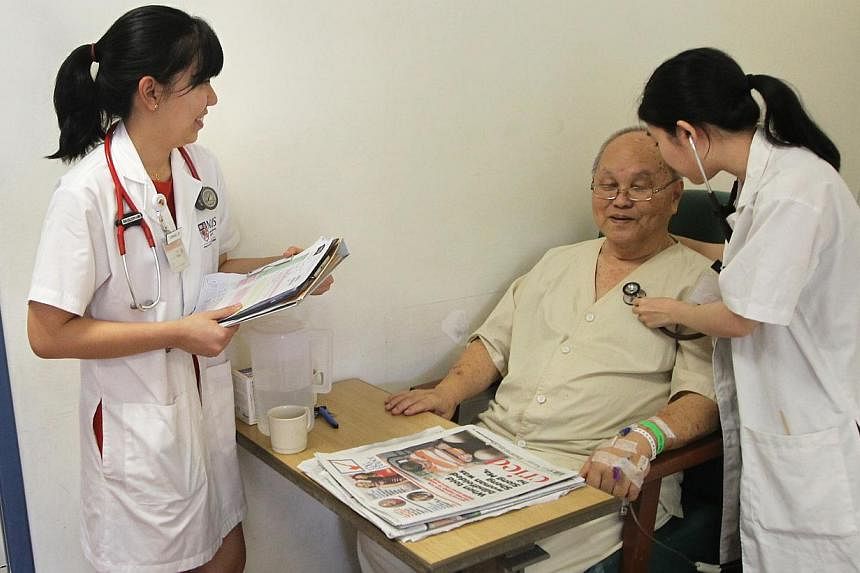STUDENTS at the National University of Singapore's (NUS) Yong Loo Lin School of Medicine are better prepared to meet the healthcare needs of the elderly, thanks to a curriculum revamp seven years ago.
In 2008, the medical school introduced a new curriculum focusing more on geriatric care, in line with the rising elderly population in Singapore.
Since the syllabus was brought in, students have been exposed to geriatrics earlier.
Eight weeks of the five-year course are devoted to the subject, including a compulsory two-week foundation course on geriatrics in the second year and a three-week posting in geriatric wards in the fifth year.
Under the old curriculum, students only went for a two-week clinical posting in a geriatric medicine department in their fifth year.
Students' knowledge of elderly patients and their medical conditions has improved since 2008, according to a study by NUS Medicine, which was published last month in the Journal of the American Geriatrics Society.
Two groups of students - 150 who went through the previous curriculum and 139 trained under the current one - were tested on their attitudes to and knowledge of geriatric care in their second and fifth years.
The results showed that while both groups performed better in their geriatric knowledge in the fifth year, students who went through the new curriculum had higher scores than their seniors.
Students have also been showing more interest in geriatrics, a field that was not as popular as others such as ophthalmology and dermatology.
One of the study's authors, Dr Lim Wee Shiong, a senior lecturer at NUS Medicine's department of medicine, said: "Many students never had the chance to speak to elderly patients unless they had grandparents."
Another author, Associate Professor Gerald Koh from the Saw Swee Hock School of Public Health, said that last year, three of the eight community health projects that students carried out were in geriatrics. In 2005 there were no geriatrics projects.
Third-year NUS Medicine student Germaine Loo, 21, said she saw the relevance of the geriatrics foundation course when she met elderly patients on a ward attachment.
"In the wards, from our point of view, we're very concerned about time and about the amount of things we need to do. But (we) really need to learn to slow down the pace and learn how to communicate from their point of view."


